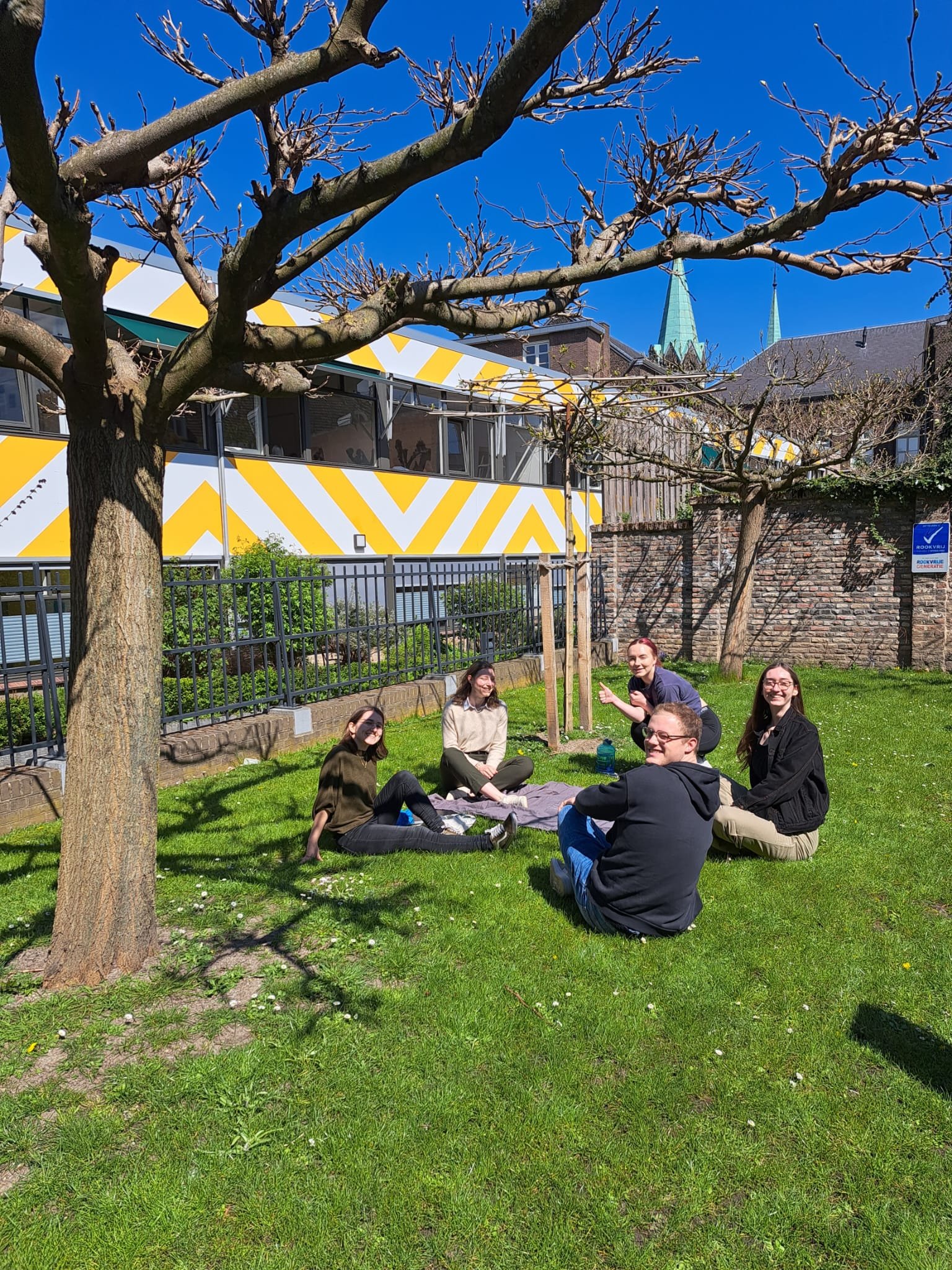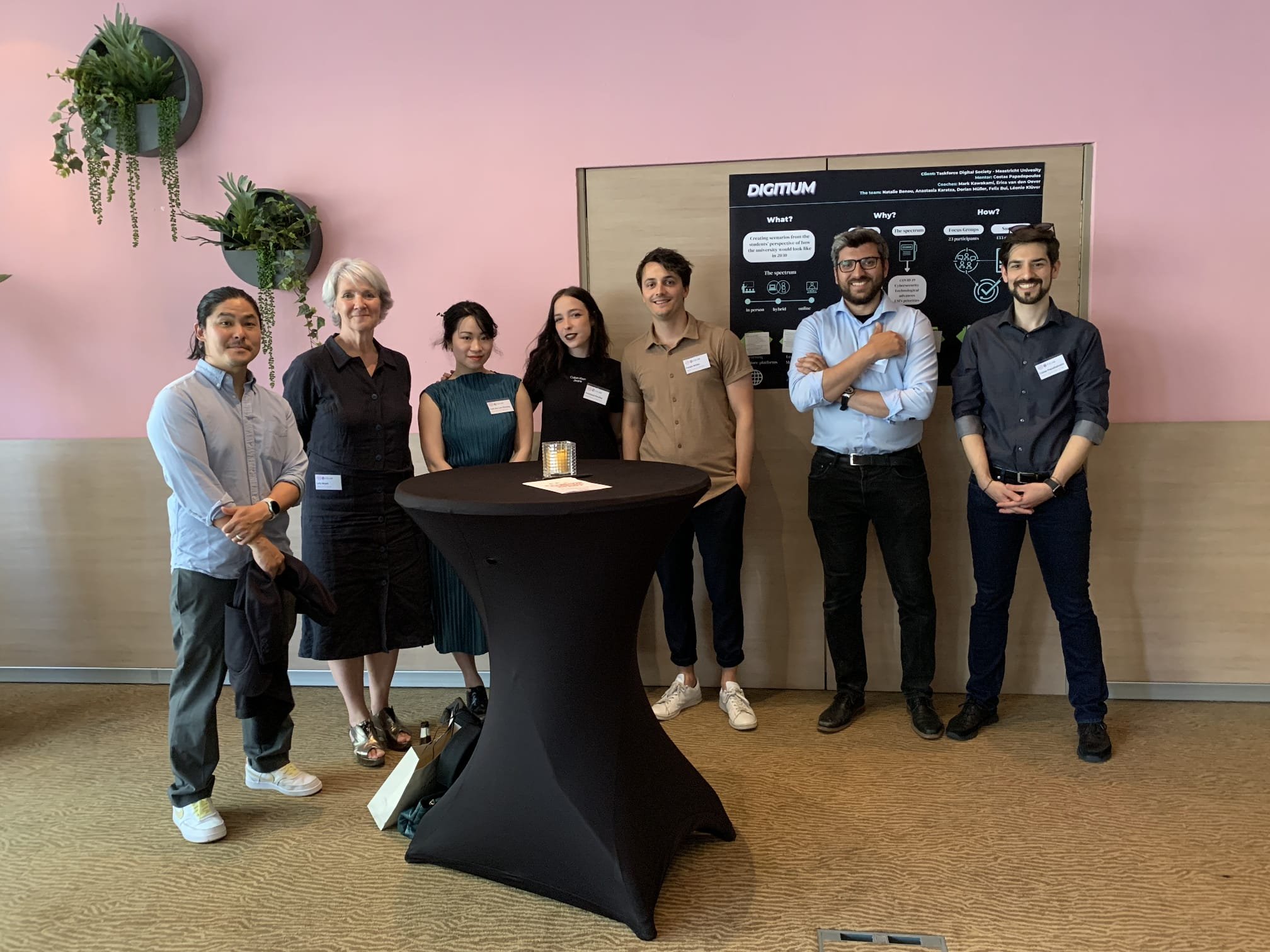I’m fortunate enough to have my university teaching all scheduled between January and June, which allows me to - at least in theory - dedicate the period between July and December on my research and my other non-teaching obligations (e.g., attempting to unsuccessfully meet publishing deadlines, organizing conferences, and sitting on assortment of advisory boards/councils for the university). Truth be told, I'm actually doing everything, everywhere, all at once; but having my teaching blocks all contained in a compact, six month period has its benefits and pitfalls.
For instance, as convenient as this schedule is for me, I end up coordinating four courses between January and June across four different faculties (Faculty of Law, School of Business and Economics, and Faculty of Arts and Social Sciences in Maastricht and the Faculty of Law at Hasselt University in Belgium) at the same time. Throw in supervising theses, drafting recommendation letters, grading and managing resits, providing unqualified career guidance/mentoring to lost souls, and having to constantly update the legal materials taught in the course all into the mix and by the time I make it to the end of June, I am a piñata at an out of control quinceañera (i.e., beaten down and lying on the ground with my insides pouring out for the rowdy children to feast upon).
The saving grace in this chaotic madness - and what arguably preserves my sanity - is that I teach International Business Law at three of the faculties, meaning that there is a sizable overlap in terms of the content from one faculty to another. I do teach and coordinate something else entirely - Global Citizenship Skills - for the interfaculty Global Studies Bachelor’s Program, but that is a course that I got to design myself with a lot of freedom (e.g., we learn about creative problem solving and empathetic listening skills), so it is more fun than anything else (at least for me).
I would also be remiss if I did not admit that this juggling is made only possible because as a coordinator, I have been blessed with the most incredible group of tutors, who are not only highly intelligent and extremely dedicated, but perhaps most importantly, they have the patience to tolerate my unorthodox teaching methods and do the majority of heavy lifting in terms of the teaching load, for which I am eternally grateful for. Thanks in most part to them, our courses receive very solid reviews from students, which is something we always cherish.
While the overlap in content and being surrounded with a great teaching team does make my life infinitely easier, I nevertheless have to tweak how I teach the content and how I engage with the students differently at each of the faculties as there are noticeable contrasts in the cultures and the preferences of the students: Majority of the students in one faculty wants assignments that force them to think more critically, while in another faculty, they just want something that is more connected to practice and “the real life” (although this is a false dichotomy as we try to meet both objectives simultaneously). Some really hate group work, while others feel lost without it. Some groups tend to have particular sensitivities to societal issues, while others seem totally unaffected or even oblivious to it. If I am teaching at two different faculties on the same day, I have to make sure to reset and adjust between classes or I risk losing the students’ engagement (or worse, I end up unintentionally saying something insensitive that triggers a negative emotion for the students).
In short, juggling courses at multiple faculties at the same time has made me a more adaptive teacher that pays careful attention to the subtle differences between the faculties and the students’ preferences therein. Thanks in part to being outsourced to other faculties, I now have a better understanding of the different faculties and their cultures, which gives me a better overview of the different ecosystems that make up our university. Moreover, the chance to work in so many different environments with colleagues specializing in diverse disciplines and developing a sense of rapport with them has made me a better academic citizen.
This opportunity has helped me in many other areas of my work aside from teaching: For example: 1) I feel that I was a better coach for the interfaculty Premium team working on the Digital Future of UM because I had a better understanding of what the students from the other faculties were experiencing; 2) having taught a diverse cohort of students, I have an easier time organizing and recruiting interfaculty groups to join my assortment of pet projects (e.g., running the Harvard Negotiation Project simulations); 3) being embedded in other faculties has also helped me be a better steward for the university in fulfilling my obligations as I serve on the Diversity & Inclusivity Advisory Council, Global Studies Advisory Board, Maastricht Young Academy, and the Editorial Board of the UMagazine; and 4) the diverse teaching experiences even helped me with my research, as I was able to churn out articles on academic citizenship based on some of the insights I collected during this teaching period (e.g., importance of effective communication, creating a safe psychological space, etc.). Like I said, everything, everywhere, all at once.
To conclude my rant (seeking to solicit some level of sympathy, whether deserved on not), teaching at different faculties simultaneously is an arduous task (especially the part about having to deal with the different set of rules and procedures at each institution), but a worthwhile one at that, as it gave me the possibility to work together with a wonderfully diverse group of students and colleagues, all with a unique set of skills and insights different from one another. Not only that but it has broadened my network and it has made me a better teacher, academic citizen, and researcher. I am grateful to the students and colleagues that I had the opportunity to work together with in the last six months (especially my wonderful tutors Carolina, Eleni, Emma, Meggie, Albert, Marc, and Obaa), so much so that I now feel bad for having complained so much about the teaching load going into it and feeling (unjustifiably?) so sorry for myself. I’m sorry about that everyone.








